Potrebujeme váš súhlas na využitie jednotlivých dát, aby sa vám okrem iného mohli ukazovať informácie týkajúce sa vašich záujmov. Súhlas udelíte kliknutím na tlačidlo „OK“.
ASTM D3826-98(2013)
Standard Practice for Determining Degradation End Point in Degradable Polyethylene and Polypropylene Using a Tensile Test
Automaticky preložený názov:
Štandardné praktiky pre stanovenie Degradácia Koncový bod v rozložiteľných polyetylénu a polypropylénu Použitie ťahové skúšky
NORMA vydaná dňa 1.2.2013
Informácie o norme:
Označenie normy: ASTM D3826-98(2013)
Poznámka: NEPLATNÁ
Dátum vydania normy: 1.2.2013
Kód tovaru: NS-25002
Počet strán: 4
Približná hmotnosť: 12 g (0.03 libier)
Krajina: Americká technická norma
Kategória: Technické normy ASTM
Kategórie - podobné normy:
Anotácia textu normy ASTM D3826-98(2013) :
Keywords:
brittle point, degradable plastics, plastics, polyethylene/polypropylene films/sheeting, tensile elongation, ICS Number Code 83.140.01 (Rubber and plastics products in general)
Doplňujúce informácie
| Significance and Use | ||||||||||||
|
4.1 The tensile elongation property determined by this practice is of value for the characterization of degradable materials. The tensile elongation property may vary with specimen thickness, method of preparation, speed of testing, type of grips used, and manner of measuring test extension. Consequently, where precise comparative results are desired, these factors must be carefully controlled. 4.2 The tensile elongation property may be utilized to provide data for research and development and engineering design as well as quality control specifications. However, data from such tests cannot be considered significant for applications differing widely from the load-time scale of the test employed. 4.3 Materials that fail by tearing give anomalous data that cannot be compared with those from normal failure. 4.4 Before proceeding with this test method, reference should be made to the specifications of the material being tested. Any test specimen preparation, conditioning, dimensions, or testing parameters or a combination thereof, covered in the material specifications shall take precedence over those mentioned in this test method. If there are no material specifications, then the default conditions apply. |
||||||||||||
| 1. Scope | ||||||||||||
|
1.1 This practice covers the determination of a degradation-end point (a brittle point) for degradable polyethylene/polypropylene films and sheeting less than 1.0 mm (0.04 in.) thick. This practice is not intended for determination of the rate of degree of degradation of a polyethylene/polypropylene film or sheet, but rather, to assess when in the course of its degradation under some condition, a brittle point is reached. If one wishes to monitor tensile elongation during the degradation process (such as when the tensile elongation is significantly greater than 5 %), Test Method D882 is recommended. This practice should not be considered the only way of determining a degradation-end point. 1.2 Tensile properties of plastics 1.0 mm (0.04 in.) or greater in thickness shall be determined in accordance with Test Method D638. 1.3 Use a static weighing-constant rate of grip separation test. This procedure employs a constant rate of separation of the grips holding the sample and a static load cell. 1.4 This procedure has been
successful for determining the degradation end point of
ethylene-carbon-monoxide copolymers and has screened successfully
two other additive-type polyethylenes in a round robin test.
1.5 The values stated in SI units are to be regarded as the standard. The values in parentheses are for information only. 1.6 This standard does not purport to address all of the safety concerns, if any, associated with its use. It is the responsibility of the user of this standard to establish appropriate safety and health practices and determine the applicability of regulatory limitations prior to use. 1.7 There is no equivalent ISO standard. |
||||||||||||
| 2. Referenced Documents | ||||||||||||
|
Podobné normy:
Historická
1.7.2013
Historická
10.10.2012
Historická
1.8.2010
Historická
1.5.2013
Historická
1.9.2013
Historická
1.4.2013
Odporúčame:
Aktualizácia zákonov
Chcete mať istotu o platnosti využívaných predpisov?
Ponúkame Vám riešenie, aby ste mohli používať stále platné (aktuálne) legislatívne predpisy
Chcete vedieť viac informácií ? Pozrite sa na túto stránku.


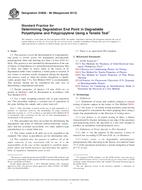
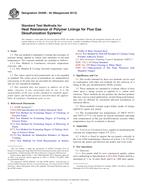 ASTM D5499-94(2013)..
ASTM D5499-94(2013)..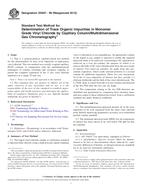 ASTM D5507-99(2012)..
ASTM D5507-99(2012)..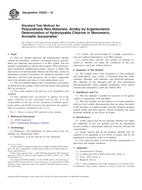 ASTM D5523-10
ASTM D5523-10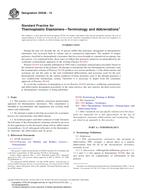 ASTM D5538-13
ASTM D5538-13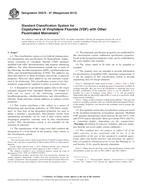 ASTM D5575-07(2013)..
ASTM D5575-07(2013)..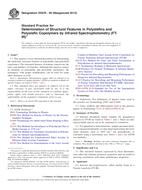 ASTM D5576-00(2013)..
ASTM D5576-00(2013)..
 Cookies
Cookies
